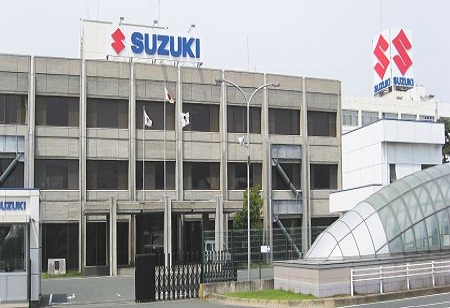
Japan's Suzuki to venture $35 billion through 2030 in EVs

 To produce battery electric cars (EVs), Suzuki Motor Corp. said it would spend 4.5 trillion yen ($34.8 billion) through fiscal 2030 on research, development, and capital expenditures.
To produce battery electric cars (EVs), Suzuki Motor Corp. said it would spend 4.5 trillion yen ($34.8 billion) through fiscal 2030 on research, development, and capital expenditures.
A battery EV facility and renewable energy facilities would each receive 2.5 trillion yen from the Japanese manufacturer known for its little "kei" vehicles. The company also announced that it would invest 2 trillion yen in electrification and autonomous driving technologies.
Batteries would be purchased using 500 billion yen of the funds set out for electrification, it stated.
Suzuki's statement follows similar plans by other Japanese automakers to catch up with American and European rivals in the rapidly expanding battery EV sector.
In order to electrify its automobiles, Mazda Motor Corp. presented a $10.6 billion spending plan in November.
In fiscal 2023, Suzuki claimed it would launch its first battery-powered EVs in Japan, including tiny sport-utility vehicles and micro "kei" cars. Toshihiro Suzuki, president of the company, stated that he aimed to sell cars for roughly 1 million yen in order to appeal to budget-conscious buyers.
The next year, Suzuki intends to launch its first battery-powered bikes worldwide as well as battery EVs in Europe and India.
The company wants to increase its share of India's growing EV market, which is gathering speed, by using its partnership with auto industry titan Toyota Motor Corp.
Suzuki stated last month during a visit to India that the company intends to learn from Toyota how to leverage EV technology to create compact electric automobiles.
Toshihiro Suzuki, however, asserted on Thursday that the automaker was keeping its lineups of hybrid and internal combustion vehicles. He cited a lack of charging infrastructure, high EV costs, and worries over finite battery resources as justifications.
Suzuki anticipated that in fiscal 2030, electric vehicles would account for 15% of its vehicle lineup in India, its largest market, while internal combustion engine vehicles using biofuels and ethanol as fuels would account for 60%.
"We will put in vehicles for various price ranges, for various people, for various regions," Toshihiro Suzuki said.

